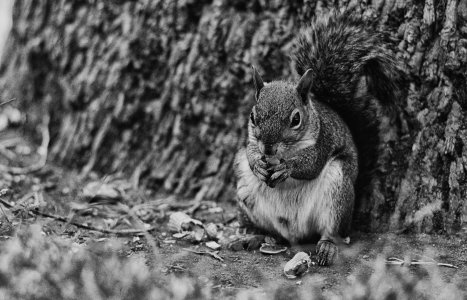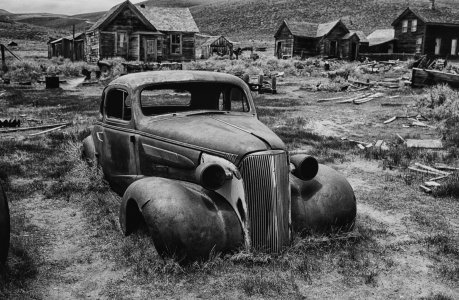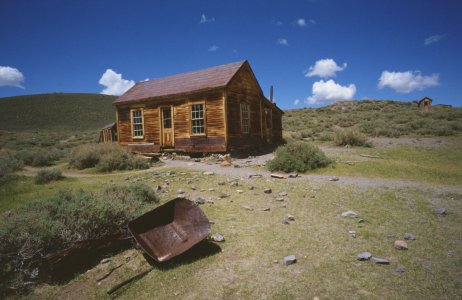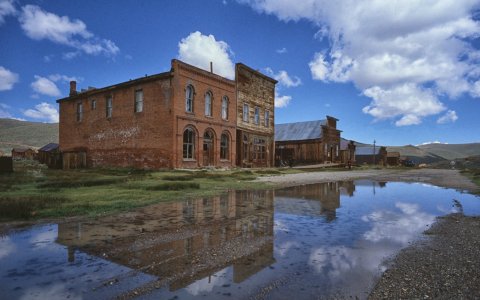boojum
Mentor
I suspect like many folks on this board I have a large cardboard box with a lot of color slides tucked away inside it. And some are actually good photos and a lot are not but they are all of interest to me. So I am interested in a way to get the slides digitized at home where the labor is not just cheap, it is free. And there is no postage for sending the slides out for processing, either. And I can turn that idle time into constructive time to satisfy those residual Calvinistic tendencies within. No more idle hands under this roof! Hah!
So I ran across this just now on YT about a Kodak device. It seems to be able to do the job but maybe not awfully well. The robot voice-over is your worst SciFi movie nightmare, a recreation of Mystery Science Theater 3000 without the humor. Which all leads me to the question of is there a good reasonably priced slide scanner?
Save me from the perdition reserved for those with idle hands. ;o)
()
So I ran across this just now on YT about a Kodak device. It seems to be able to do the job but maybe not awfully well. The robot voice-over is your worst SciFi movie nightmare, a recreation of Mystery Science Theater 3000 without the humor. Which all leads me to the question of is there a good reasonably priced slide scanner?
Save me from the perdition reserved for those with idle hands. ;o)
()
Chriscrawfordphoto
Real Men Shoot Film.
No, there aren't. Unfortunately.
That Kodak thing is a low quality digital camera with a small sensor and fixed focus lens that photographs each slide rather than scanning them. Digital camera scanning can give high-quality professional results, if you use a good camera and a proper macro lens. If you happen to have a D-SLR or a mirrorless system camera and a macro lens, you can do this yourself just about as fast as that device, but with much, much better image quality.
There are some who would recommend the inexpensive Plustek scanners that cost a few hundred dollars. I can't recommend them. I tried to buy the 8200i, which was actually one of Plustek's more expensive 35mm scanners a few years ago, and it had misaligned optics. One side of the scans was sharp, the other soft. I returned it and the replacement was just as bad, except that on it the unsharp side was opposite of what it had been on the first one. All in all, I tried four of them before giving up. None were good. Poor quality control.
That Kodak thing is a low quality digital camera with a small sensor and fixed focus lens that photographs each slide rather than scanning them. Digital camera scanning can give high-quality professional results, if you use a good camera and a proper macro lens. If you happen to have a D-SLR or a mirrorless system camera and a macro lens, you can do this yourself just about as fast as that device, but with much, much better image quality.
There are some who would recommend the inexpensive Plustek scanners that cost a few hundred dollars. I can't recommend them. I tried to buy the 8200i, which was actually one of Plustek's more expensive 35mm scanners a few years ago, and it had misaligned optics. One side of the scans was sharp, the other soft. I returned it and the replacement was just as bad, except that on it the unsharp side was opposite of what it had been on the first one. All in all, I tried four of them before giving up. None were good. Poor quality control.
lynnb
Mentor
I've been surprised at the scan quality I've achieved scanning 35mm Kodachrome slides (in the cardboard mounts) on my ageing Epson V700 using Epson's crappy plastic slice holder and the (no longer supported?) Epson Scan software that came with the scanner. It may not approach anything like a drum scanner but the quality seems good for medium size prints (though I haven't printed any of the scans).
Keith
The best camera is one that still works!
I've been surprised at the scan quality I've achieved scanning 35mm Kodachrome slides (in the cardboard mounts) on my ageing Epson V700 using Epson's crappy plastic slice holder and the (no longer supported?) Epson Scan software that came with the scanner. It may not approach anything like a drum scanner but the quality seems good for medium size prints (though I haven't printed any of the scans).
I've done plenty of slides for friends with my V700 and I thought the results were pretty good.
Godfrey
somewhat colored
A box of three of 36 slides each is no problem to do at home. A box or three of 1000 slides each and I call for help. 
- For home scanning: I can use my Nikon Coolscan V ED (slow scanning, excellent quality) or a copy-camera setup with Leica M10-R, Macro-Elmarit-R lens and Essential Film Holder jig (even better quality; slow, painstaking setup; fast scanning).
- For what I call for help on: ScanCafe.com does a very good job efficiently, and relatively inexpensively.
ddutchison2
Established
Back when film was the only option, many camera makers (Pentax, Nikon, Canon, to name a few) made macro-bellows with integral slide holders that would hold a slide or 35mm neg completely flat and in perfect alignment for copying. These can easily be adapted to any digitalcamera, and with a 24MP sensor and a good 6-element enlarger lens (a cheaper and sharper alternative to a conventional macro lens for this purpose), will produce results equal to a top level consumer grade scanner. Bellows/copier, 2 adapters and enlarging lens should run you around $300 right now, less if you can wait for deals to show up. Software is available for free (GIMP, Darktable, etc)
boojum
Mentor
I am tracking bellows in LTM on eBay. They are cheap. With LTM at each end I can hook onto a Leica or other with adapters and click away. This seems the cheapest but most labor intensive. Being retired and unemployed it would either be this or back to basket weaving. I can look for a LTM enlarger lens, too.Back when film was the only option, many camera makers (Pentax, Nikon, Canon, to name a few) made macro-bellows with integral slide holders that would hold a slide or 35mm neg completely flat and in perfect alignment for copying. These can easily be adapted to any digitalcamera, and with a 24MP sensor and a good 6-element enlarger lens (a cheaper and sharper alternative to a conventional macro lens for this purpose), will produce results equal to a top level consumer grade scanner. Bellows/copier, 2 adapters and enlarging lens should run you around $300 right now, less if you can wait for deals to show up. Software is available for free (GIMP, Darktable, etc)
Thanks for endorsing what I thought could be a good idea. And this solution has a nice geeky appeal to it, you know, weird gadgets (bellows) and a strange appearance. All this makes it look borderline magic. Can't beat camera magic. ;o)
Bill Blackwell
Leica M Shooter
I bought a Plustek 8200i scanner last year (<$500) and I've been more satisfied with it. QC may be an issue, but my copy has done me quite well. It produces large clean files.... There are some who would recommend the inexpensive Plustek scanners that cost a few hundred dollars. I can't recommend them. I tried to buy the 8200i, which was actually one of Plustek's more expensive 35mm scanners a few years ago, and it had misaligned optics. One side of the scans was sharp, the other soft. I returned it and the replacement was just as bad, except that on it the unsharp side was opposite of what it had been on the first one. All in all, I tried four of them before giving up. None were good. Poor quality control.
Colors can be funky - and inconsistent, but I believe it's the old slides (as old as 47-years). But B&W conversions are always fantastic.


Kodachrome 64 - scanned and converted to B&W


Leica M2, 21mm Pre-Asph Elmarit-M, Kodachrome 64 (taken in around 1990) - scanned on Plustek 8200i
Last edited:
ddutchison2
Established
I am tracking bellows in LTM on eBay. They are cheap. ...
The integrated slide holder is the key. Really good enlarging lenses are the Componons (not the Componar), Rodagons (not the Roganar), most El-Nikkor's ( though some, like the 75/f4, are only 4 element lenses), and the C.E. Rokkors.
boojum
Mentor
OK, are there enlarger lenses which will mount to M39 LTM? This thread mount can be adapted to almost anything. And, yes, the slide holder, yikes, hard to find.The integrated slide holder is the key. Really good enlarging lenses are the Componons (not the Componar), Rodagons (not the Roganar), most El-Nikkor's ( though some, like the 75/f4, are only 4 element lenses), and the C.E. Rokkors.
If I can track down a slide holder I pretty much have this solved. "For the want of a nail the shoe was lost, . . . "
Last edited:
ddutchison2
Established
Most enlarger lenses are LTM mount as standard, some also come with the much smaller Schneider M-25 mount, so watch out for those. Leica bellows with slide copiers will be expensive if available at all, but since flatness and precise alignment is the main challenge here, the combination is worth it. Personally I'd prefer to adapt a Pentax or Nikon unit. even with the adapters it'd cost less.OK, are there enlarger lenses which will mount to M39 LTM? This thread mount can be adapted to almost anything. And, yes, the slide holder, yikes, hard to find.
agentlossing
Well-known
You get what you pay for when it comes to film and slide scanners. I have a somewhat more expensive one, the Pacific Image XAs, and, while I haven't scanned any slides with it, I've scanned a lot of negatives and I'm quite happy with its performance. Definitely much better than a flatbed scanner. I've also seen reviews of slide film scanning with it and they seemed to go quite well.
rjstep3
Established
The OP says he has a big box of slides (and negs presumably?), quality variable but valuable memories. To me this suggests that he doesn't want to spend years pushing individual slides through a dedicated film scanner (like the Plustek 8200 - which is great, I have one, haven't had any problems with QC). Scanners like that are not automated. Just to put one 35mm film through the 8200 and Photoshop as I went took a whole half day. Not viable for a large collection.
I would be looking at a flatbed where the OP can scan batches of slides all at once - ok, before anyone shouts at me, the quality won't be quite so good as a dedicated film scanner, but it will be good enough to digitise those memories. I use an Epson V850, thrilled with it, but I hear that the V600 is much cheaper and delivers good enough results.
I would be looking at a flatbed where the OP can scan batches of slides all at once - ok, before anyone shouts at me, the quality won't be quite so good as a dedicated film scanner, but it will be good enough to digitise those memories. I use an Epson V850, thrilled with it, but I hear that the V600 is much cheaper and delivers good enough results.
Last edited:
dexdog
Mentor
I have a Nikon Coolscan V ED, works great with Vuescan on any version of Windows. I have not used it much in the last coupla years, but scanned about 4000 slides for my mom in 2010. Took me about 3 months over the winter. If you do not want a film scanner, there have been several really good threads on RFF about using digital cameras with a dedicated setup and light table.
Chriscrawfordphoto
Real Men Shoot Film.
I bought a Plustek 8200i scanner last year (<$500) and I've been more satisfied with it. QC may be an issue, but my copy has done me quite well. It produces large clean files.
Colors can be funky - and inconsistent, but I believe it's the old slides (as old as 47-years). But B&W conversions are always fantastic.
View attachment 4822513View attachment 4822516
Kodachrome 64 - scanned and converted to B&W
View attachment 4822515View attachment 4822514
Leica M2, 21mm Pre-Asph Elmarit-M, Kodachrome 64 (taken in around 1990) - scanned on Plustek 8200i
My attempt at buying a Plustek was a few years ago, so maybe they've gotten better. Your scans look good. The color ones really look nice; I don't see anything funky about the color unless you edited them to fix it. Kodachrome is not an easy film to scan even with a higher-end scanner like my Nikon. I always have to do a lot more color correction on Kodachrome scans to get them to look good, compared to E-6 films.
rjstep3
Established
These are super images, nicely scanned, they are very creditable.I bought a Plustek 8200i scanner last year (<$500) and I've been more satisfied with it. QC may be an issue, but my copy has done me quite well. It produces large clean files.
Colors can be funky - and inconsistent, but I believe it's the old slides (as old as 47-years). But B&W conversions are always fantastic.
View attachment 4822513View attachment 4822516
Kodachrome 64 - scanned and converted to B&W
View attachment 4822515View attachment 4822514
Leica M2, 21mm Pre-Asph Elmarit-M, Kodachrome 64 (taken in around 1990) - scanned on Plustek 8200i
boojum
Mentor
Actually, pushing these slides through some kind of scanning device would be OK. Better than mowing the lawn or any other constructive efforts. I have a lot of slides from a month long trip through China in '88 when it was all bicycles not BMW's. And other stuff, too.The OP says he has a big box of slides (and negs presumably?), quality variable but valuable memories. To me this suggests that he doesn't want to spend years pushing individual slides through a dedicated film scanner (like the Plustek 8200 - which is great, I have one, haven't had any problems with QC). Scanners like that are not automated. I would be looking at a flatbed where the OP can scan batches of slides all at once - ok, before anyone shouts at me, the quality won't be quite so good as a dedicated film scanner, but it will be good enough to digitise those memories. I use an Epson V850, thrilled with it, but I hear that the V600 is much cheaper and delivers good enough results.
From what I have found digging around I can cobble together a rig and photograph the slides or I can just go out and get the V600 scanner. The V600 will scan up to 6400 DPI which is pretty dense, and slow I would guess. But I can see what Epson sells so many. They are an easy way to get good results.
Can anyone tell me yea or nay on the V600? It costs almost $1,000 less that the V850 and on paper yields the same results but on a smaller scanning bed. As all I want to do is slides a small bed would work.
agentlossing
Well-known
Why would one scanner take more time in photoshop over another? You can batch scan and edit later. Still better to have a higher quality rendering of your input to begin with.The OP says he has a big box of slides (and negs presumably?), quality variable but valuable memories. To me this suggests that he doesn't want to spend years pushing individual slides through a dedicated film scanner (like the Plustek 8200 - which is great, I have one, haven't had any problems with QC). Scanners like that are not automated. Just to put one 35mm film through the 8200 and Photoshop as I went took a whole half day. Not viable for a large collection.
I would be looking at a flatbed where the OP can scan batches of slides all at once - ok, before anyone shouts at me, the quality won't be quite so good as a dedicated film scanner, but it will be good enough to digitise those memories. I use an Epson V850, thrilled with it, but I hear that the V600 is much cheaper and delivers good enough results.
rjstep3
Established
There is zero point scanning at 6400 dpi on a flatbed: the optical resolution is actually far less. On my V850 I think I read somewhere (so it must be true ...) that its optical resolution is about 2400 dpi. So scanning at anything more than that results in gargantuan file sizes for no discernible increase in quality.Actually, pushing these slides through some kind of scanning device would be OK. Better than mowing the lawn or any other constructive efforts. I have a lot of slides from a month long trip through China in '88 when it was all bicycles not BMW's. And other stuff, too.
From what I have found digging around I can cobble together a rig and photograph the slides or I can just go out and get the V600 scanner. The V600 will scan up to 6400 DPI which is pretty dense, and slow I would guess. But I can see what Epson sells so many. They are an easy way to get good results.
Can anyone tell me yea or nay on the V600? It costs almost $1,000 less that the V850 and on paper yields the same results but on a smaller scanning bed. As all I want to do is slides a small bed would work.
I haven't had a V600 (or its predecessor) - from what I have read, it is just about as good as a V850 for far less money and will turn adequate results.
BTW - don't underestimate the boredom of pushing film through a dedicated film scanner. Granted, mowing the lawn is not much fun either, but it gets you out in the open air
rjstep3
Established
The point is that you can't batch scan with an 8200 - you have to push the film through one at a time.Why would one scanner take more time in photoshop over another? You can batch scan and edit later. Still better to have a higher quality rendering of your input to begin with.
Share:
-
This site uses cookies to help personalise content, tailor your experience and to keep you logged in if you register.
By continuing to use this site, you are consenting to our use of cookies.

